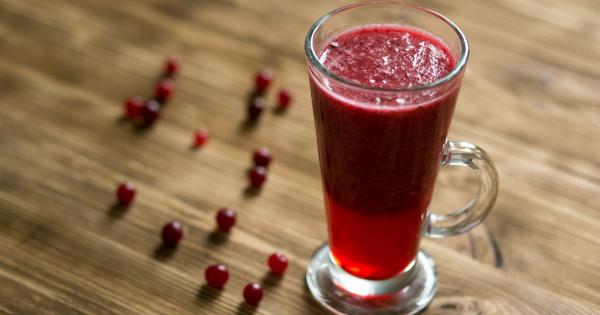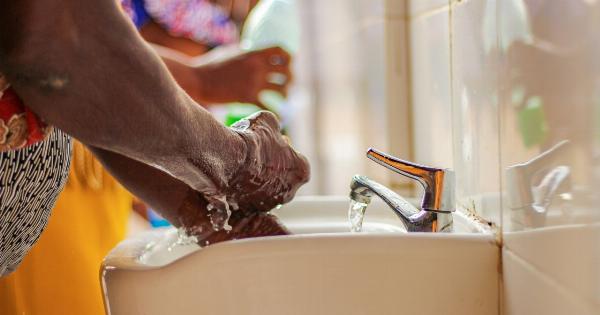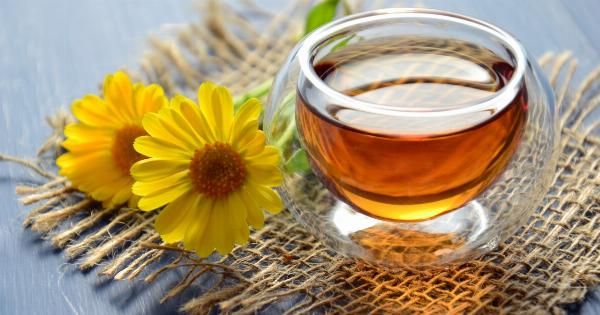Urinary tract infections (UTIs) are a common health issue, particularly among women. It is estimated that around 50-60% of women will experience at least one UTI in their lifetime.
UTIs occur when bacteria enter the urethra and multiply in the urinary tract, leading to uncomfortable symptoms such as frequent urination, pain or burning sensation during urination, and cloudy or bloody urine.
Antibiotics are the most commonly prescribed treatment for UTIs.
However, due to concerns about antibiotic resistance and potential side effects, many individuals are turning to alternative remedies, such as cranberry juice, to alleviate the symptoms and prevent recurrent infections. In this article, we will explore the effectiveness of cranberry juice in treating UTIs and whether it is a viable alternative to antibiotics.
What’s in Cranberry Juice?
Cranberry juice is derived from cranberries, small red berries native to North America. These berries are rich in antioxidants, vitamins, and minerals. They also contain certain compounds known as proanthocyanidins (PACs).
It is believed that these PACs play a crucial role in preventing bacteria from adhering to the walls of the urinary tract, thus reducing the risk of infection.
The Theory behind Cranberry Juice and UTIs
The idea of using cranberry juice to prevent and treat UTIs is based on the belief that the PACs in cranberries can prevent bacteria, primarily Escherichia coli (E. coli), from sticking to the cells in the urinary tract. E.
coli is the most common cause of UTIs, responsible for approximately 80-90% of all cases.
When bacteria cannot adhere to the urinary tract walls, they are flushed out of the body during urination. This mechanism may help prevent the colonization of bacteria and reduce the risk of infection.
However, it is important to note that cranberry juice is not a cure for UTIs. It is believed to primarily help in prevention and as a complementary approach to treatment.
Evidence from Scientific Studies
Several scientific studies have investigated the effectiveness of cranberry juice in preventing and treating UTIs. While some studies have shown positive results, others have found no significant difference between cranberry juice and a placebo.
A review published in the Archives of Internal Medicine in 2012 analyzed the findings of multiple studies and concluded that cranberry products can decrease the incidence of UTIs in certain populations, such as women with recurrent UTIs.
However, the review also mentioned that the effectiveness of cranberry products varied depending on the formulation and dosage used in the studies.
A more recent study conducted by researchers at Yale University and published in the American Journal of Obstetrics and Gynecology in 2016 found no significant difference in UTI recurrence rates between women who drank cranberry juice daily and those who consumed a placebo. The study included 185 participants, and the results suggested that cranberry juice does not have a significant preventive effect on UTIs.
These contradictory findings highlight the need for further research and the importance of understanding individual variations in response to cranberry juice.
It is possible that some individuals may benefit from cranberry juice as a preventive measure, while others may not experience any significant effects.
Considerations and Potential Risks
While cranberry juice is generally safe for most people, there are a few considerations and potential risks to keep in mind:.
- Sugar Content: Many commercially available cranberry juices contain added sugars, which can contribute to weight gain, diabetes, and other health issues. It is essential to choose unsweetened cranberry juice or opt for fresh cranberries to avoid excessive sugar intake.
- Interactions with Medications: Cranberry juice can potentially interact with certain medications, including blood thinners such as warfarin. If you are taking any medications, it is advisable to consult with your healthcare provider before incorporating cranberry juice into your routine.
- Effects on Kidney Stones: Cranberry juice is rich in oxalates, which can contribute to the formation of kidney stones in some individuals. If you have a history of kidney stones or are at risk for developing them, it is best to consult with a healthcare professional before consuming cranberry juice regularly.
The Bottom Line
Cranberry juice has long been considered a popular home remedy for UTIs. While some studies have shown its potential effectiveness in preventing UTIs, there is still a lack of definitive evidence.
It is important to keep in mind that cranberry juice should not be used as a substitute for medical treatment, especially in severe cases. If you suspect you have a UTI, it is crucial to seek medical attention and follow the prescribed treatment, which often includes antibiotics.
While cranberry juice may offer some benefits in terms of prevention and complementary support for treatment, its effectiveness varies among individuals.
It is advisable to consider the potential risks and consult with a healthcare professional before incorporating cranberry juice into your routine, particularly if you have any underlying health conditions or are taking medications that may interact with it.































